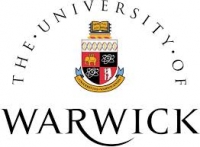






Following an in-depth foundation in biochemistry, the course broadens out to allow students to focus in more specialist fields. These include biophysical chemistry, which permits the descriptions of biological macromolecules at the atomic level, and understanding the genome and gene regulation. By the third year optional modules provide you with the opportunity to pursue areas that you find particularly interesting. Students leave Warwick with a solid background in the biochemical and structural basis of molecular, cellular and developmental processes in a variety of organisms ranging from bacteria to mammals. For more information please visit the Biochemistry website. How will I be taught? You will receive weekly tutorials and spend one or two days a week undertaking laboratory work. This is more project-oriented in your second year, culminating in a substantial individual research project in your final year. This may be wholly laboratory-based, or involve data collection or fieldwork. Purpose-built teaching facilities are fully integrated with research laboratories, facilitating opportunities for informal contact with teaching and research staff. How will I be assessed? You will be assessed using a variety of methods including tutorial, laboratory practical, oral presentation and other written assignment tests as well as exam based questions. What opportunities are there for work placements? All of our degrees can be taken with an intercalated year of salaried employment with industry or a research establishment, between second year and third year modules. Recent placements include the Assisted Reproduction Unit Walsgrave Hospital, AstraZeneca, GSK, Novartis and DEFRA. Application for placements is made at the beginning of year two. A high proportion of applicants are successful and approximately 20–30 students each year benefit from the scheme. Students join carefully monitored research projects, covering a wide range of scientific areas. They gain valuable experience in scientific writing and information technology and, in some placements, insights into legal and regulatory aspects of science, e.g. patenting, quality assurance, environmental control. Participants in the scheme remain registered students during placement and are awarded a degree ’with Intercalated Year’. What opportunities are there to study abroad? All students have the option of spending a year at a University in continental Europe under the Erasmus scheme, between your second and third year. This will add a year to your overall period of study and you will thus complete your degree in four years. Students will typically be expected to have completed at least Level 3 (or equivalent) in the target language prior to studying abroad; you can take language modules in years one and two to reach this level, which can count towards your degree if you choose.
| Number | Duration |
|---|---|
| 3 | year |
Career destinations for life scientists range from ‘bench science’, non-laboratory-based scientific work, to a wide variety of areas outside science. Almost 40% of our graduates undertake postgraduate study. Life Sciences graduates are equally likely to be found establishing careers in industry, finance or the civil service. A number of graduates in the Life Sciences go on to study medicine and Warwick welcomes applicants to its graduate-entry medical course – details of the entry criteria and application process for which can be found on page 140. Working with the Medical School, we are developing a support framework for those students who wish to move on from their Warwick degree to study medicine and who demonstrate early in the course that they are very likely to meet the requirements to enter the Warwick graduate-entry MBChB course. You should check the University’s website for up-to-date details.